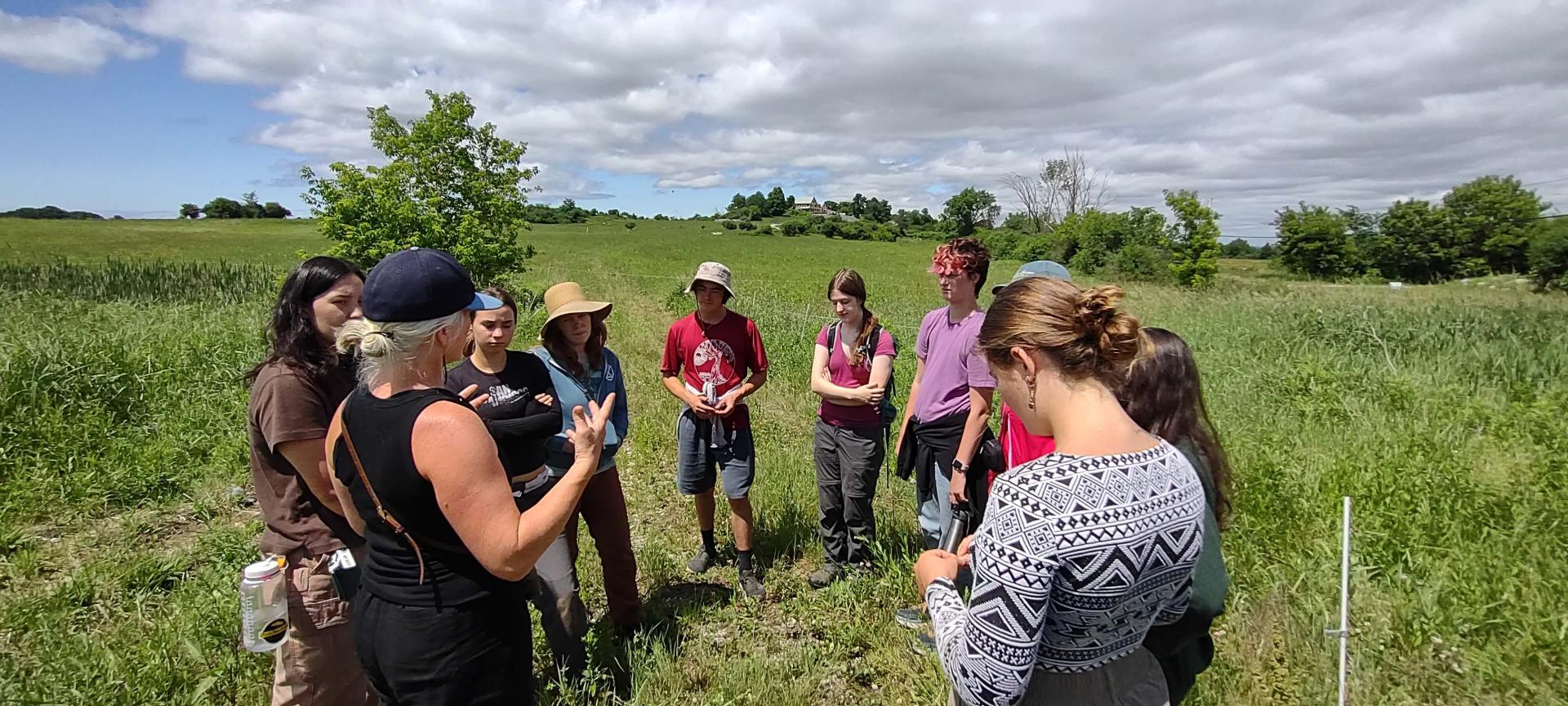Overview
Overview
In this program, we explore the scholarship of teaching and learning in higher education and within communities and social movements. The IFA is advancing agroecological education through diverse initiatives including undergraduate and graduate programs, community partnerships, and international collaborations. Our team brings deep experience studying learning processes within agroecology movements across Latin America, Europe, and North America, with published expertise in participatory action research, critical pedagogy, and transdisciplinary education.

Unlike industrial agriculture—which relies on capital- and resource-intensive inputs—agroecology is grounded in knowledge-intensive, place-based practices. As such, education is not peripheral but essential to agroecological transformation. It serves as a critical lever for shifting mindsets, practices, and systems. This research program aims to examine and develop agroecological learning in both:
Informal education such as learning processes in farmer-to-farmer networks, grassroots organizations, and agroecology schools
Formal education, particularly at the university level, plays a key role in legitimizing, institutionalizing, and scaling agroecological approaches
We explore the methodologies and processes that underpin transformative education in support of agroecological scaling. We engage with the Scholarship of Teaching and Learning (SoTL) in higher education, while also drawing insights from informal, community-based learning embedded in social movements.
We ask: What teaching practices and learning processes make education truly transformative? What can we learn from radical grassroots educators who have created their own models of critical, emancipatory pedagogy? How can these models be integrated into formal education systems not originally designed with transformation in mind? What should agroecology programs look like? Who should they serve? And how can they help catalyze systemic change?
This work is grounded in a reflective action research approach, driven by our team's commitment to continually refining our own pedagogical practices. By sharing lessons learned, challenges faced, and innovations developed, we aim to support a broader community of educators and learners committed to agroecological transformation.
Key Areas
People
Research Affiliate • Policy Program Co-Director, Food Solutions New England
Research Affiliate, PhD Student
Research Associate, Agroecology Support Team
Operations Manager, Institute for Agroecology
Research Associate • Lecturer
Professor
Research Associate Professor
Carlos Andres Gallegos-Riofrío
Research Assistant Professor, Institute for Agroecology
IfA Research Collaborator, University of Maine
Research Affiliate